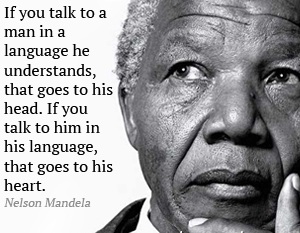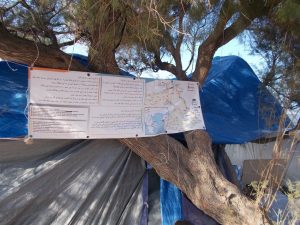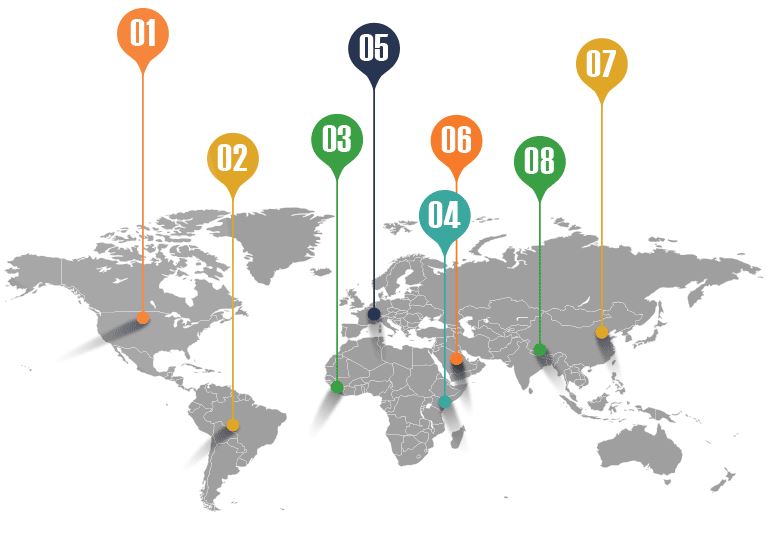Yesterday I translated our company presentation with Systran’s new Neural Machine Translation (NMT) engine, and I was amazed at the results.
The presentation in question was a complete overview of all of our services, 59 pages of French text that was edited three separate times to make sure the quality was perfect. (Thanks Faten, Boris and Laurence!)
Then, two days ago, just as I was putting the finishing touches on the presentation for a response to an RFP (Request For Proposals), I found out that our prospective client (a major French manufacturer) wanted our response in English. I had just one day to deliver 59 pages of perfect English content!
Let me give you some background to explain why I, the CEO of a translation company, decided to use Neural Machine Translation for one of our most important commercial documents for one of our most important tenders.
Since 2007, Lexcelera has been responding to customer requests for machine translation for a number of different reasons: to allow clients to understand the contents of a patent or technical document; to translate internal reports; to automatically convert websites into other languages; or to provide a first-draft translation that our team would post-edit to irreproachable quality.
The benefits to our clients are just what you would expect. There are cost savings, first and foremost. And, of course, speed is accelerated. MT also makes content accessible that wouldn’t be otherwise, revealing what’s in a document that may be of interest. And with a first draft provided by a good MT engine that we have trained ourselves, Lexcelera’s translation productivity is sky high.
However, MT is not something we would normally turn to for non-technical content like our company presentation. Even though it can actually improve terminological consistency, depending on the software tool we use, it’s normally not suited for content that requires a superb writing style. But I was desperate. I needed a translation instantaneously so I could meet the deadline for our RFP response.
It so happens that we are in the process of beta testing Systran’s new NMT tool. If you haven’t heard of Neural Machine Translation yet, it’s certain that you will be hearing about it soon. NMT is the newest advance in computer-generated translations. Radically different from other approaches such as SMT and RBMT, neural machine translation uses a large neural network, organized much like the human brain.
Now that I have personally seen the result of Systran’s beta engine, I won’t say that NMT will entirely do away with the need for human translators, but it’s sure to have an impact on our industry.
Read on for my experience with Lexcelera’s beta test.
Usually with machine translation, there is a lot to correct, unless you have trained the engine very very well. That’s our speciality, training good MT engines. But this time, the Systran NMT engine was a completely untrained, generic engine. And still, the translation of our company presentation was amazing.
I needed to make corrections, of course. But I was surprised at how few errors there were. Mostly the Systran NMT engine understood what I wanted to say, and translated it very fluidly. The majority of the time, the terminology was spot on, and the sentences, well, they sounded human.
The translation did go off the rails in a few places. (I wonder how NMT would translate “off the rails”.) Once in a while it would leave a French word in the middle of an English sentence. Or, weirdly, it would repeat the same word twice. And about every three to four sentences, there would be a glaring error that I had to correct. Even so, I was stunned to find that I could leave whole sentences intact.
Most of the errors I spotted are easily fixable, like the repeated words, and the terms the system didn’t know. (Ironically, Systran’s NMT system did not recognize the term “post-édition” in French, and it mis-translated “relecture” as re-reading.) I have no doubt that Systran will make these fixes, and up their game in terms of in-context training as well. And then what?
I believe Lexcelera’s computational linguists will still have a role to play in training the NMT engines. There will always be product names and internal terminology to respect and protect. There will always be the need to integrate prior translations from our translation memories. And we will always need to make sure certain texts conform: for example, to make sure that the help manuals match the user interface.
Most importantly, Lexcelera’s post-editors will always need to re-read every word to guard against errors and omissions. (At least I think they will.) But what’s happening today is that even if NMT is not perfect, it has just crossed over from being a tool that gives you a general understanding of a text (usually referred to as “gisting”) to a tool that, well, gives you a proper translation. Not a perfect one, but a damn good one all the same.
I believe I have seen the future. Lexcelera’s challenge, like the challenge of every language-loving, multicultural and multilingual professional (in other words, translators), will be to establish our relevance alongside tools that are getting closer every day to reproducing human speech. (Did I happen to mention that NMT is also self-learning?)
Lexcelera is already working towards this new future by making sure we are in the advance guard. We know that MT, especially with the advent of NMT, is here to stay. That’s why we have been spending around 7% of our revenues on R&D to make sure we stay in the lead. And the investment has paid off. We’ve been working with language technologies long enough to master them. We know how to customize them, how to adapt them, how to improve them. But this is not just computing work. We train MT engines, good ones, by relying on human talents – on professional translators, post-editors and computational linguists. On people.
I believe that with NMT, there will still be a role for language professionals – for language lovers. But it looks like we will either have to work alongside the technology, or to carve out niches for ourselves in the increasingly smaller number of places where machine translation cannot go. I’d say we have three years to do this, tops, before NMT hits the mainstream. But it could rise a lot more quickly.
Stay tuned.
– Lori Thicke
What do you think? We’d love to hear your opinion. Please leave your comments below.
The post Neural Machine Translation (NMT) Beta Test appeared first on Lexcelera.








